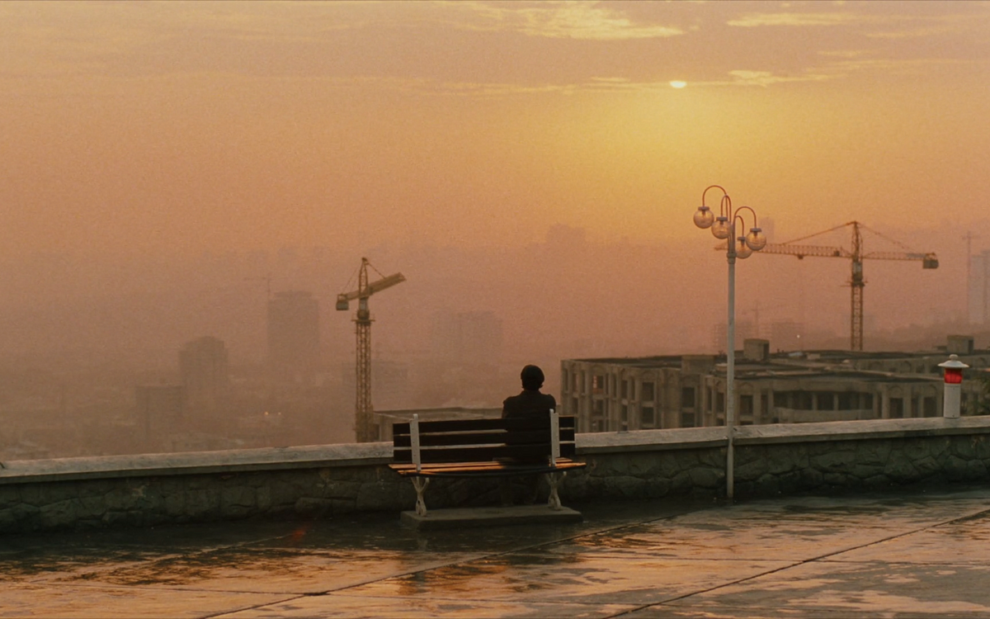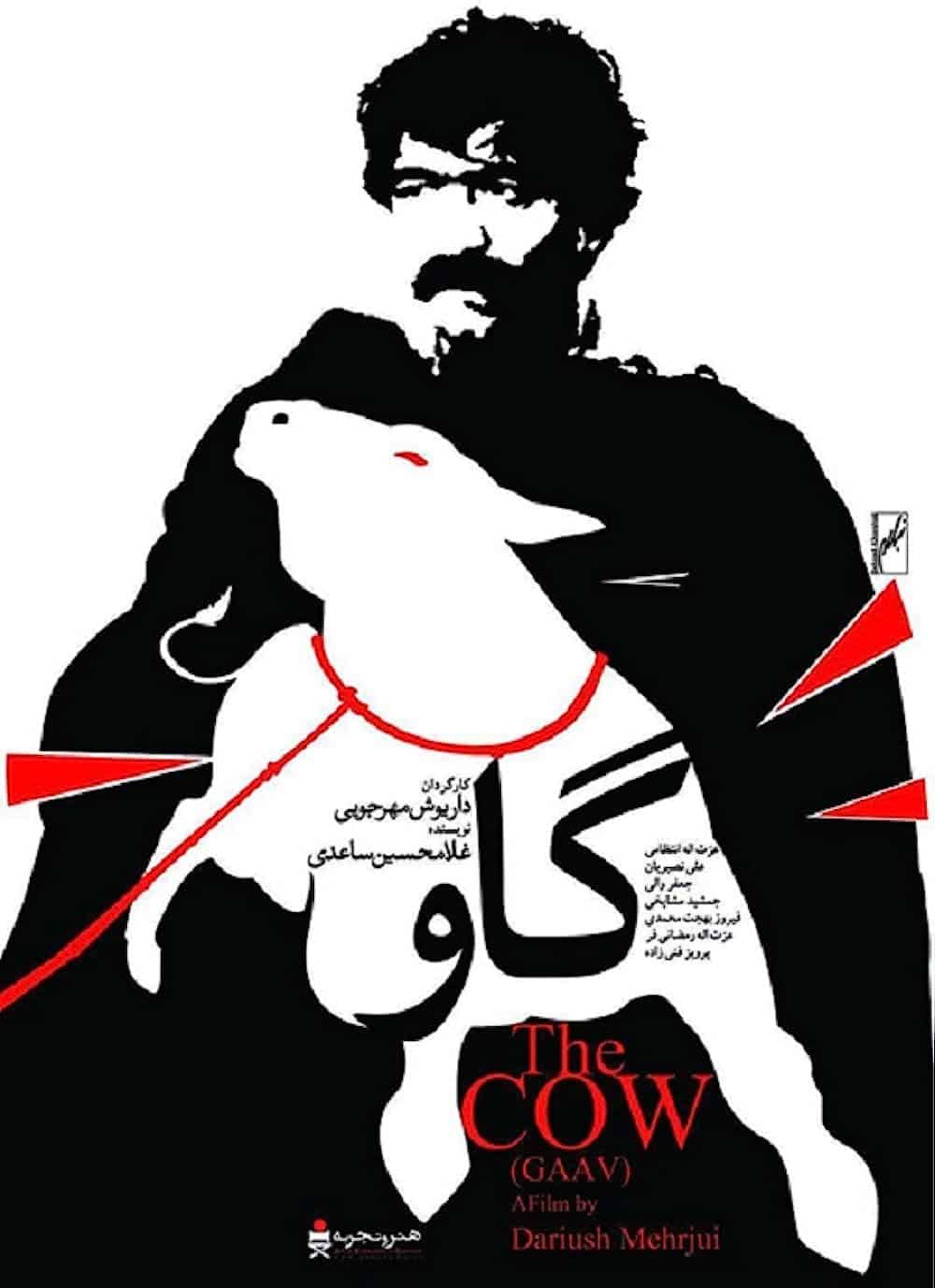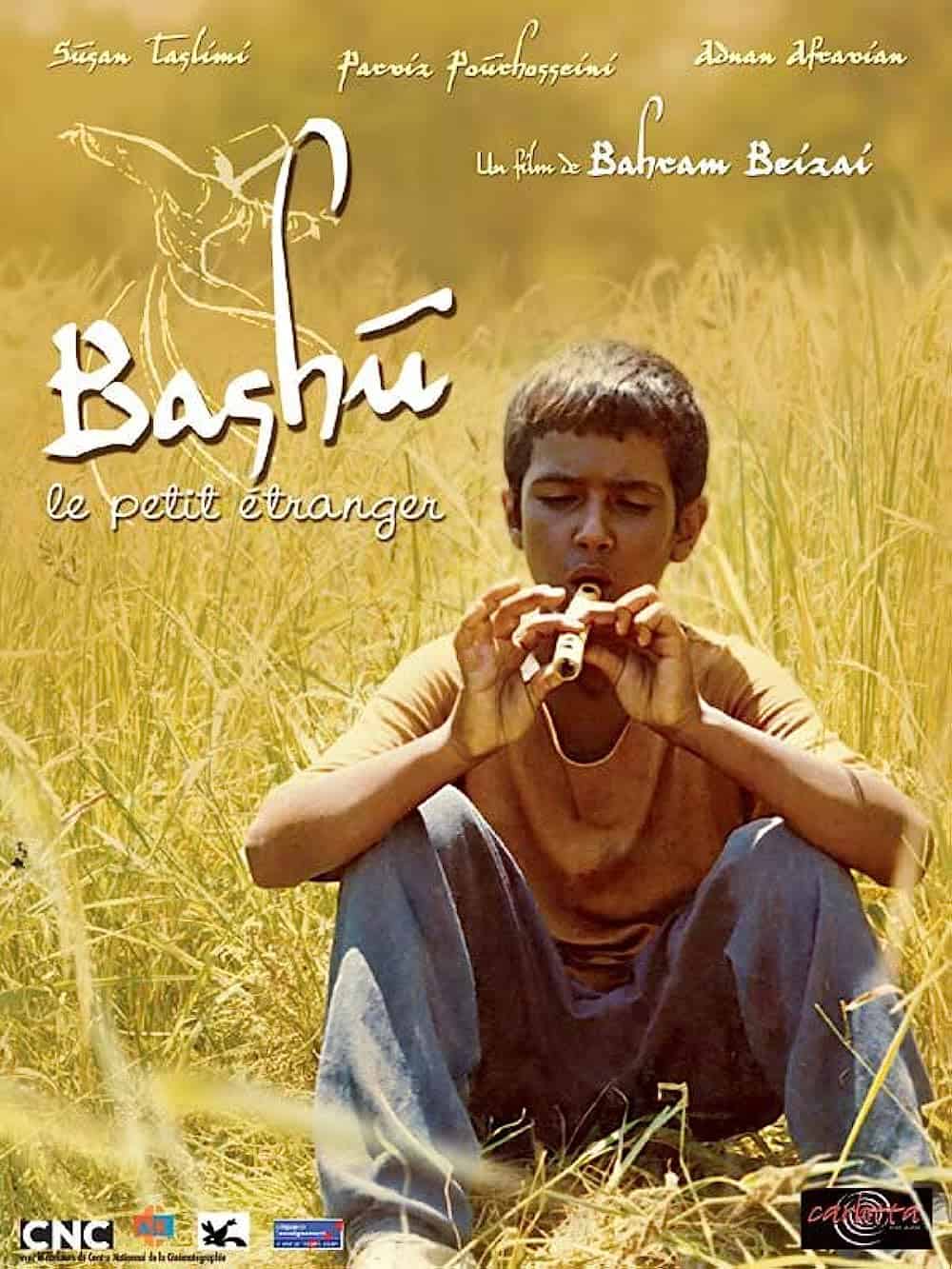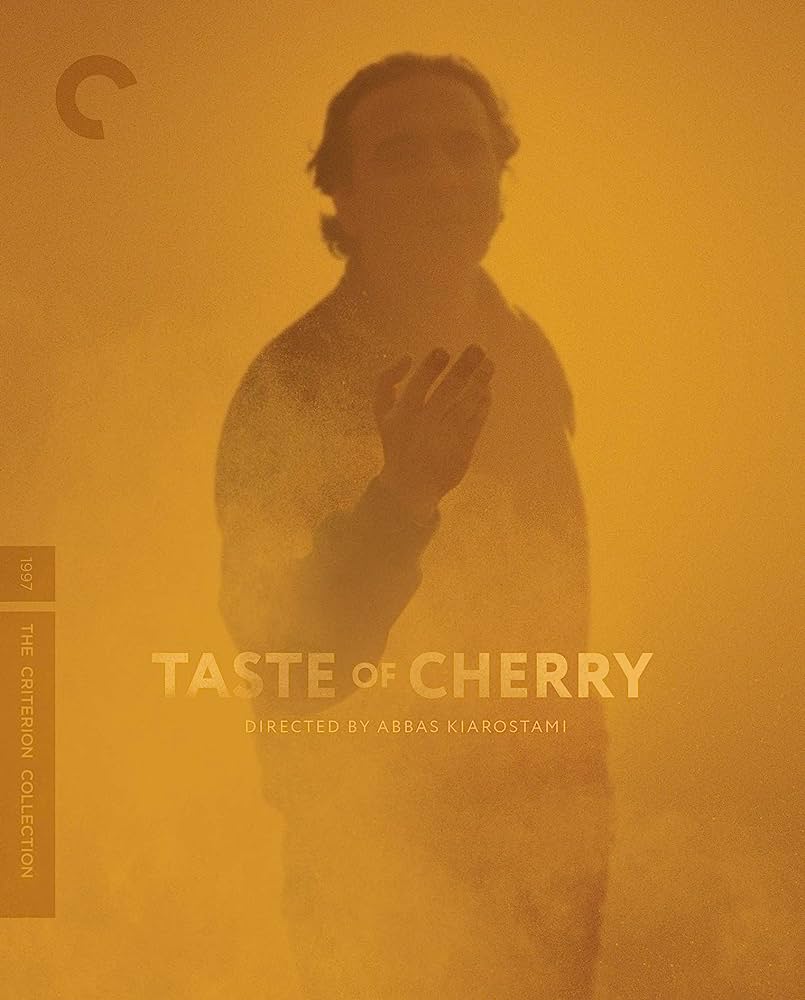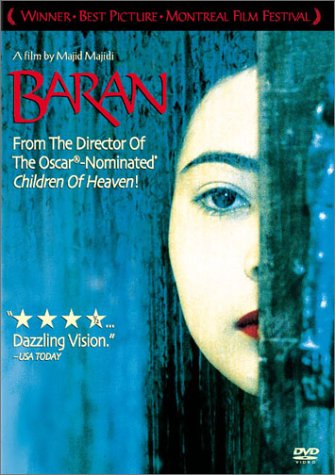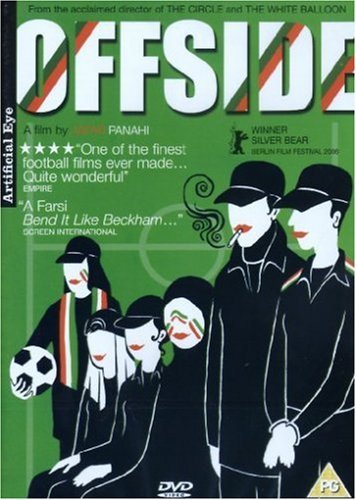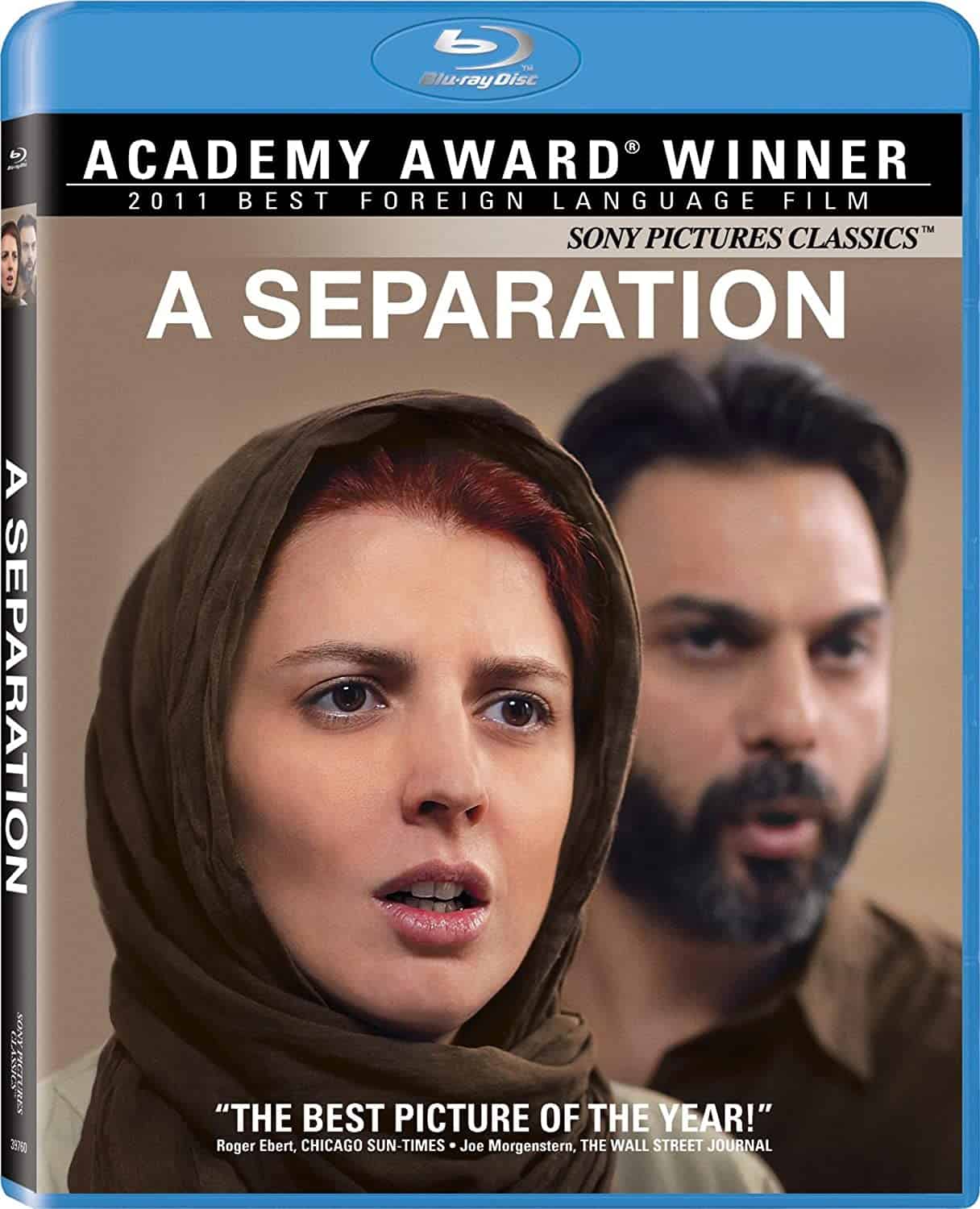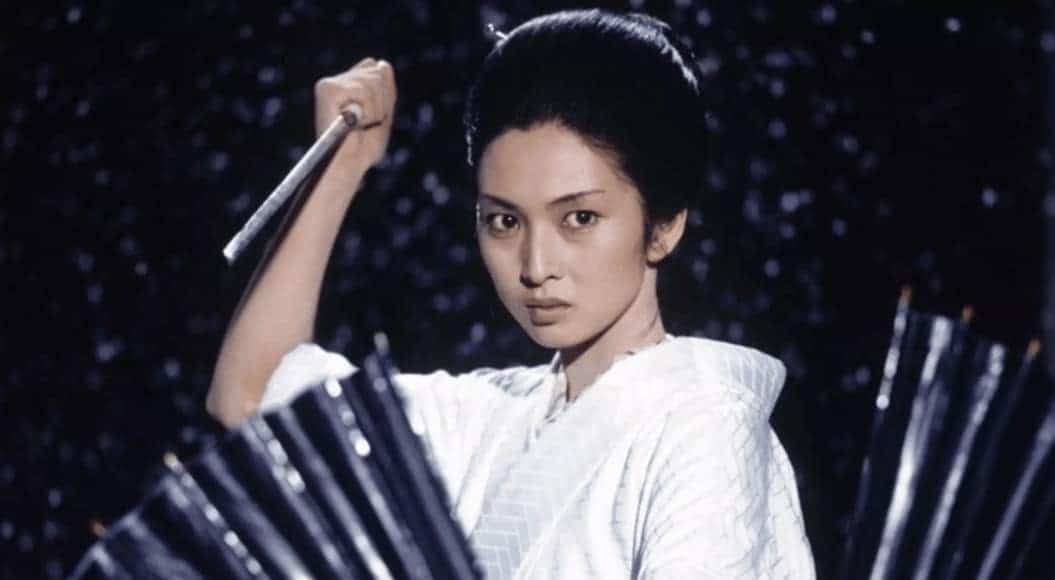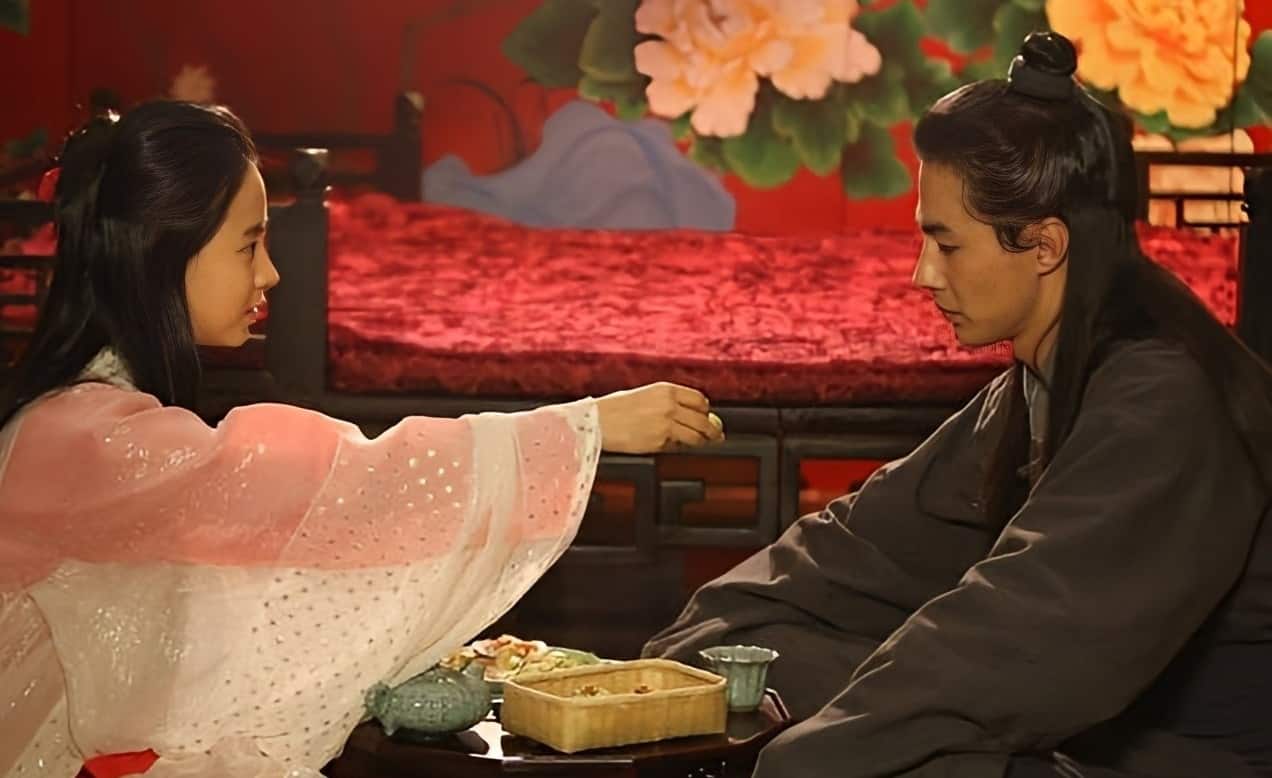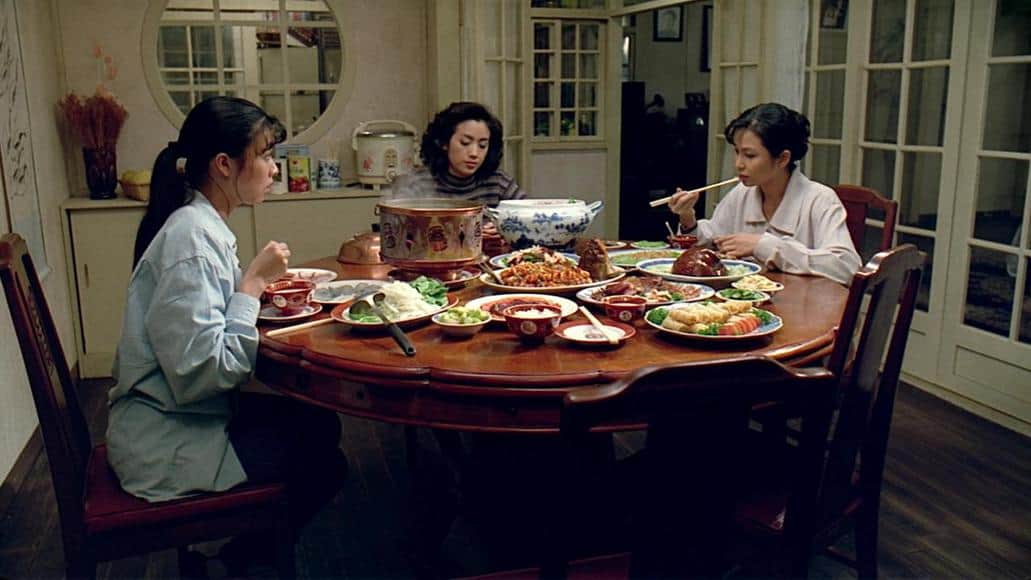Cinema in Iran began to blossom in the 1950s and 1960s, kicking off what was to become one of the world's most celebrated national cinemas. What was coined the Iranian New Wave more or less includes films beginning in the 1960s all the way through the early 2010s, which encompasses the bulk of Iranian film history. Filmmaking shifted but did not stop after the 1979 Iranian Revolution, when many artists went into exile and more extreme censorship was imposed. Today, Iranian cinema that reaches the global market has a particular character to it, characterized by directors including Asghar Farhadi and Jafar Panahi, who have received international acclaim for their grounded features depicting the nuances of Iranian society. As such, this list reflects films of this nature.
In chronological order, we examine 6 Iranian films from 6 different Iranian directors that trace the diversity of these movies through the years, examining stories that have gained critical acclaim and showcasing what Iranian cinema has to offer. To call a film “essential” is a difficult and sometimes problematic undertaking, especially when it implies defining a canon, so this list remains non-exhaustive.
1. The Cow (1969) by Dariush Mehrjui
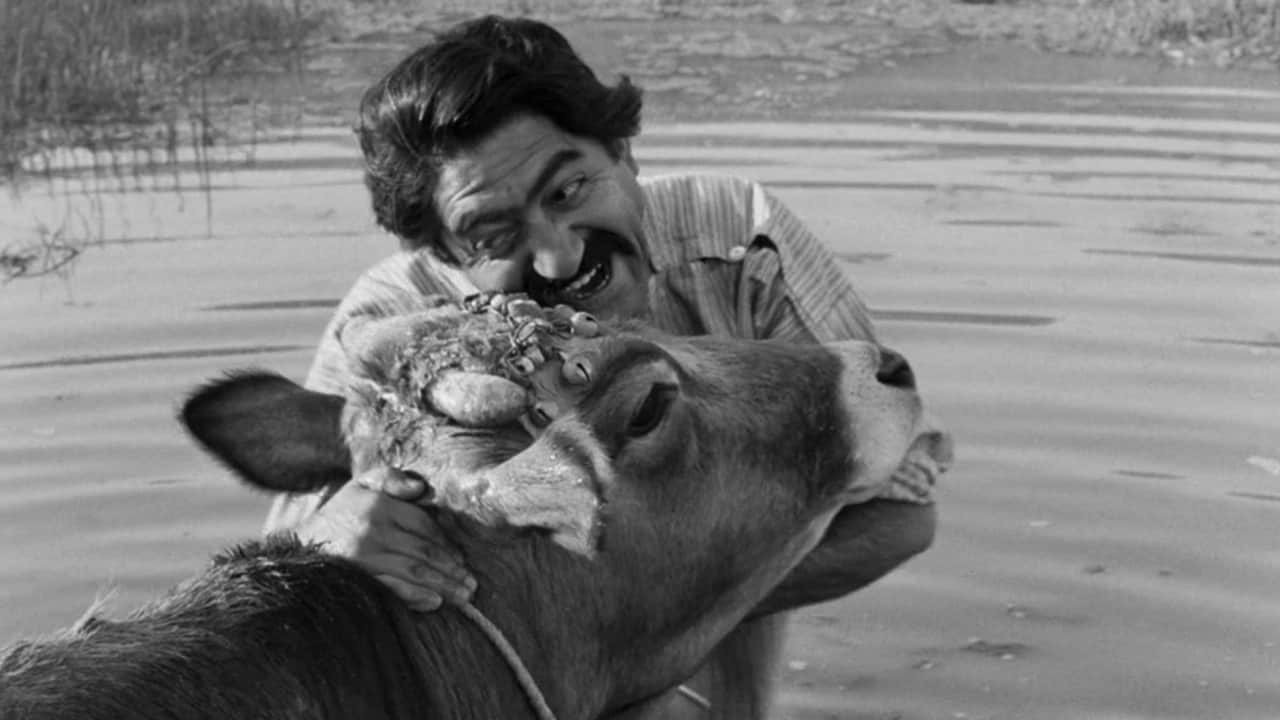
Dariush Mehrjui's seminal 1969 film reveals a lush and vibrant cinematic space within the confines of a black-and-white film situated wholly within a rural Iranian village. Written by Gholam-Hossein Saedi and based on a play that he wrote, Mehrjui's work is well-cited as the movie that marked the beginning of the Iranian New Wave as well as what was then alternative cinema embraced by larger audiences.
“The Cow” follows an Iranian man (Ezzatolah Entezami) and the love he has for his precious cow in a remote village, depicting the social interiority of community life. Although funded by the state, the film was then banned by the Shah and the state precisely because of this depiction, which did not align with a more Westernized image of Iran. After finding his cow dead, the protagonist slowly begins to lose his mind and begins projecting himself as the cow, throwing the village into disarray. The movie can perhaps be read as an allegory of government oppression, deception, and an unwitting collective mindset that ultimately feeds a vicious cycle of blame on external forces and actors.
2. Bashu, the Little Stranger (1989) by Bahram Beyzaie
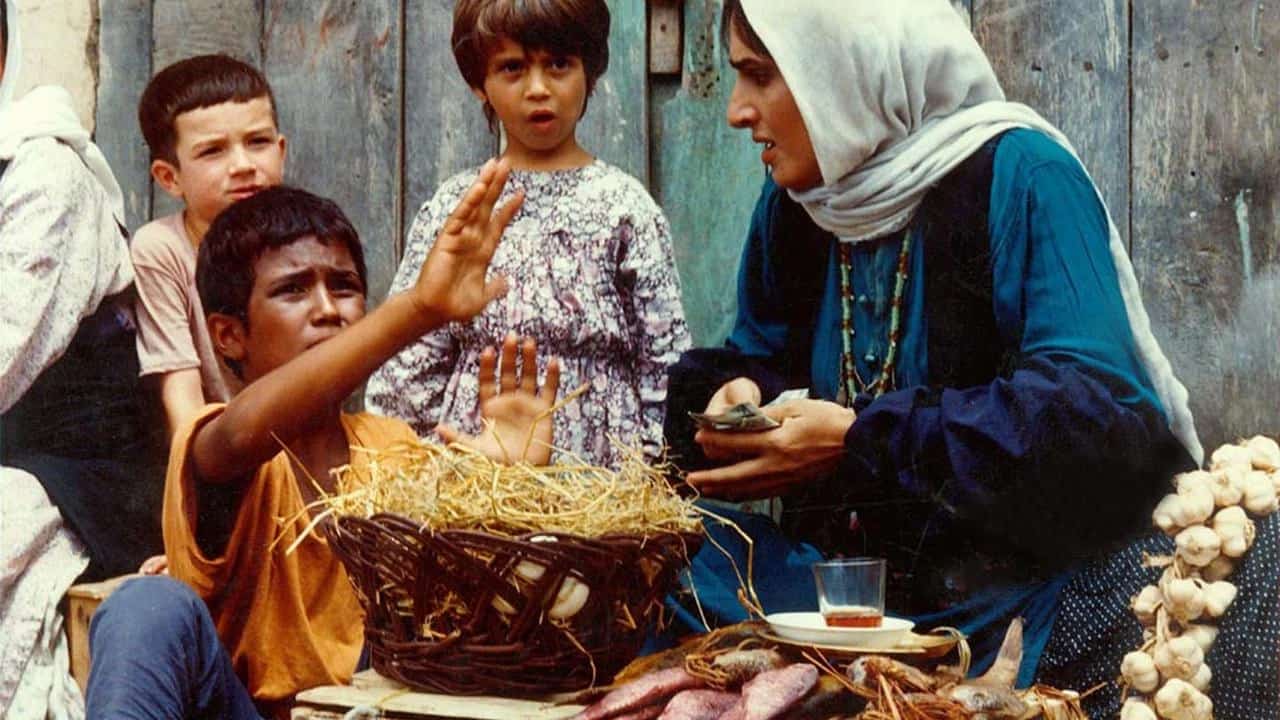
Produced in 1986 but released in 1989, “Bashu, the Little Stranger” shows the heterogeneity of Iran and Iranian filmmaking in the post-Revolution period. In the movie, Gilaki is prominently featured, a language spoken in the northwestern part of Iran near the Caspian Sea. This heartwarming story takes place during the Iran-Iraq War of the 1980s and is about the eponymous young boy of Afro-Iranian descent, Bashu (Adnan Afravian), whose parents are killed during the war. The boy then forges a relationship with a woman named Naii (Susan Taslimi), who he begins regarding as his mother. Through the course of the film, they develop an intertwined dependence and trust in each other. Naii may have rescued Bashu from a life on the road, but in many ways, Bashu also rescued Naii from her complicity in the community's racist attitudes. Beyzaie's work is a masterful condemnation of Iranian ethnic nationalism and a unique form of war film in which the majority of the story does not take place in a strict “war zone,” yet the events of the movie are heavily influenced by conflict.
3. Taste of Cherry (1997) by Abbas Kiarostami
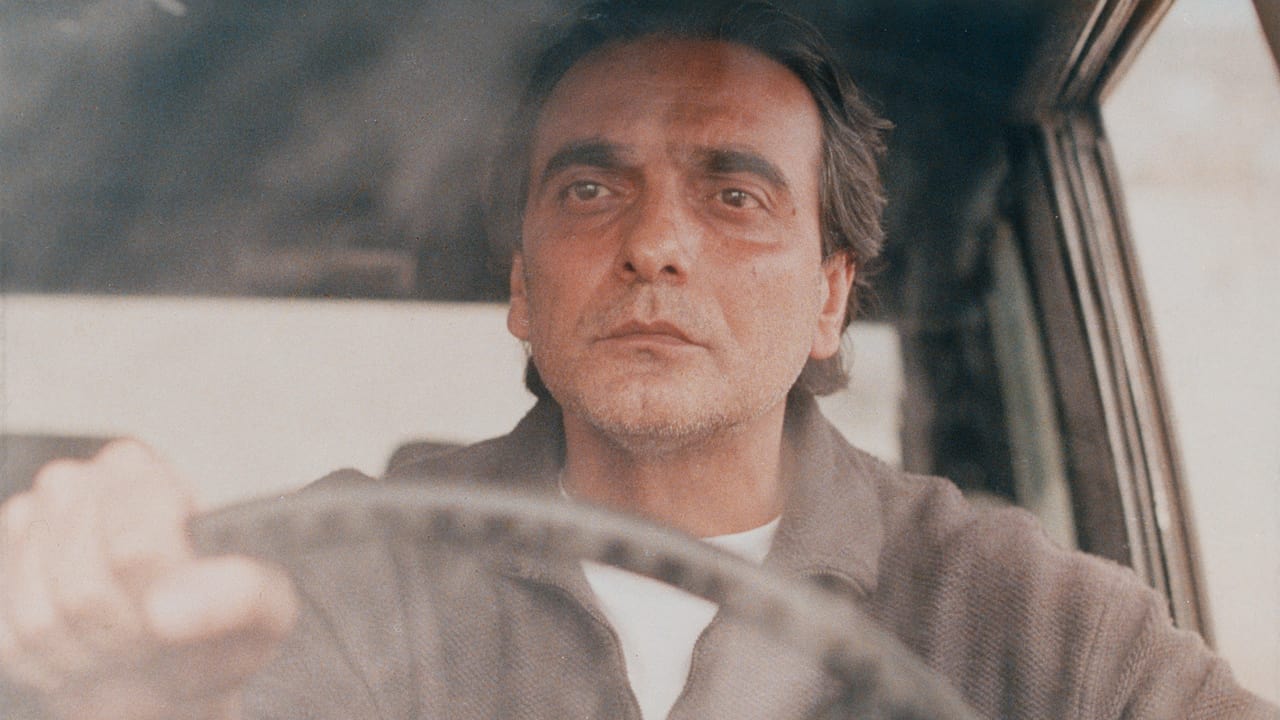
Abbas Kiarostami's highly celebrated “Taste of Cherry” won the Palme d'Or at Cannes in 1997. The work is a slow-moving meditation on life that envelops the viewer in a deep aural-visual landscape and dives into moral and philosophical considerations of living and the experience of life itself, as embodied in the eponymous sensory experience of the title. Driving around Tehran, the middle-aged Mr. Badii (Homayoun Ershadi) is planning his suicide and seeks someone to either help bury his body or help him if he decides against ending his life.
For the viewer that goes into the film without any knowledge, only 20 minutes in doe they actually know why Mr. Badii is driving around and what he is requesting. With no background on Mr. Badii — only him, his car, his 200,000 tomans, and his request — the viewer must decide for themselves all of his motives. The movie is not visually hyper-focused on the main character, even if much of it devoted to long takes of him driving in his car. It is him navigating through the hills and landscape of greater Tehran, but it is also him metaphorically navigating his own life through an exploration of his hypothetical death.
4. Baran (2001) by Majid Majidi
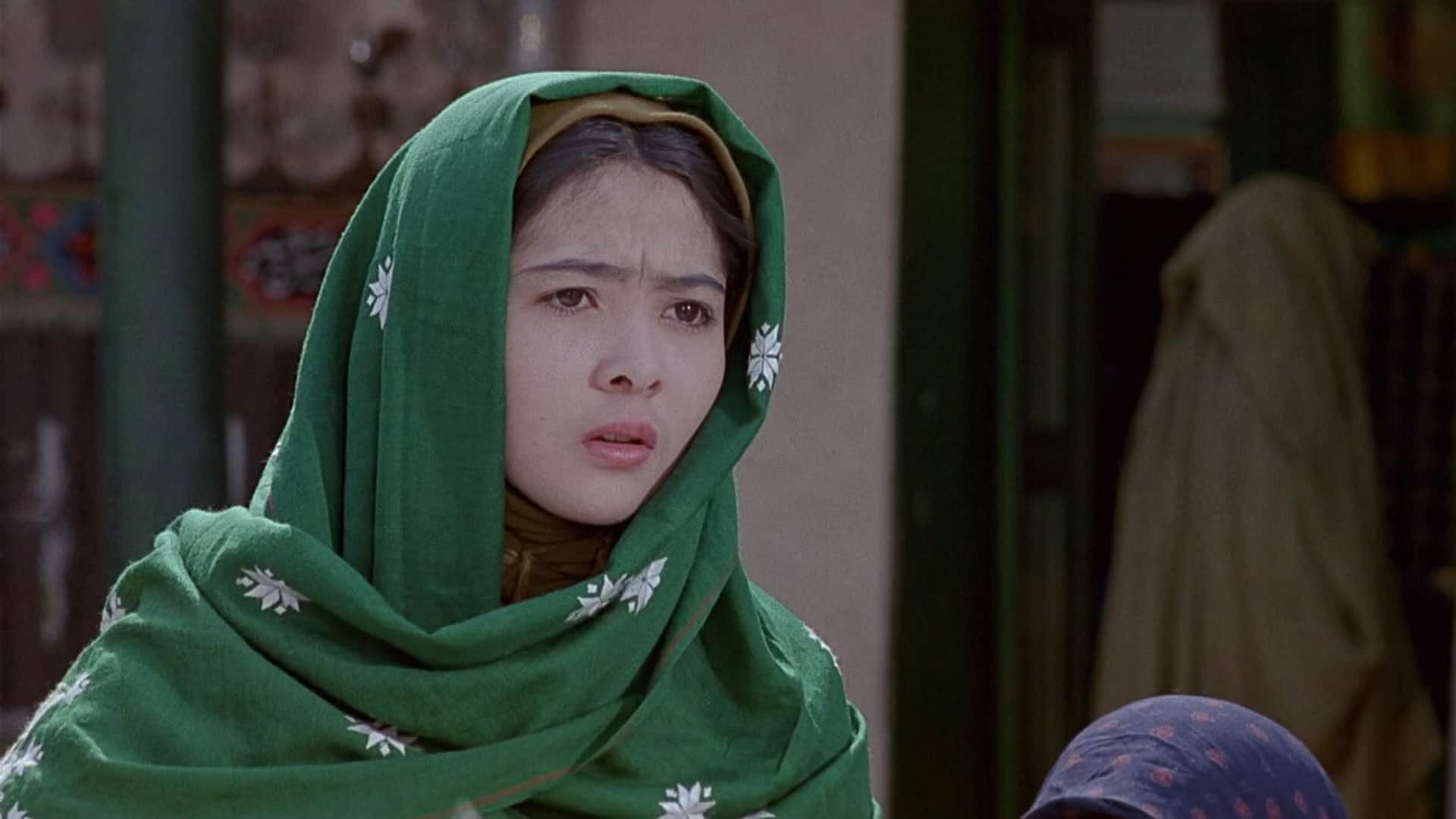
Majid Majidi's “Baran” (meaning “rain,” but is also the name of a character) is a sweeping metaphor-filled exploration of young discovery and cultural guilt that could arguably be identified as a coming-of-age film. Like “Bashu, the Little Stranger,” the movie shows the fictionalized experiences of different ethnic communities in Iran. Taking place in Tehran, the film tracks young construction worker Lateef (Hossein Abedini), one among many migrant workers from Afghanistan and the Iranian province of Azerbaijan. He meets Baran (Zahra Bahrami), who is working at the construction site disguised as a boy named Rahmat, and they begin to forge a close friendship.
Majidi's unique cinematographic style is flowing and fluid like the water that he emphasizes as a motif throughout the film. Long shots carve through the construction site building, representing it both as a source of livelihood for the workers as well as a tenuous sanctuary that can be raided at any time by officials looking for Afghan refugees and undocumented immigrants.
5. Offside (2006) by Jafar Panahi
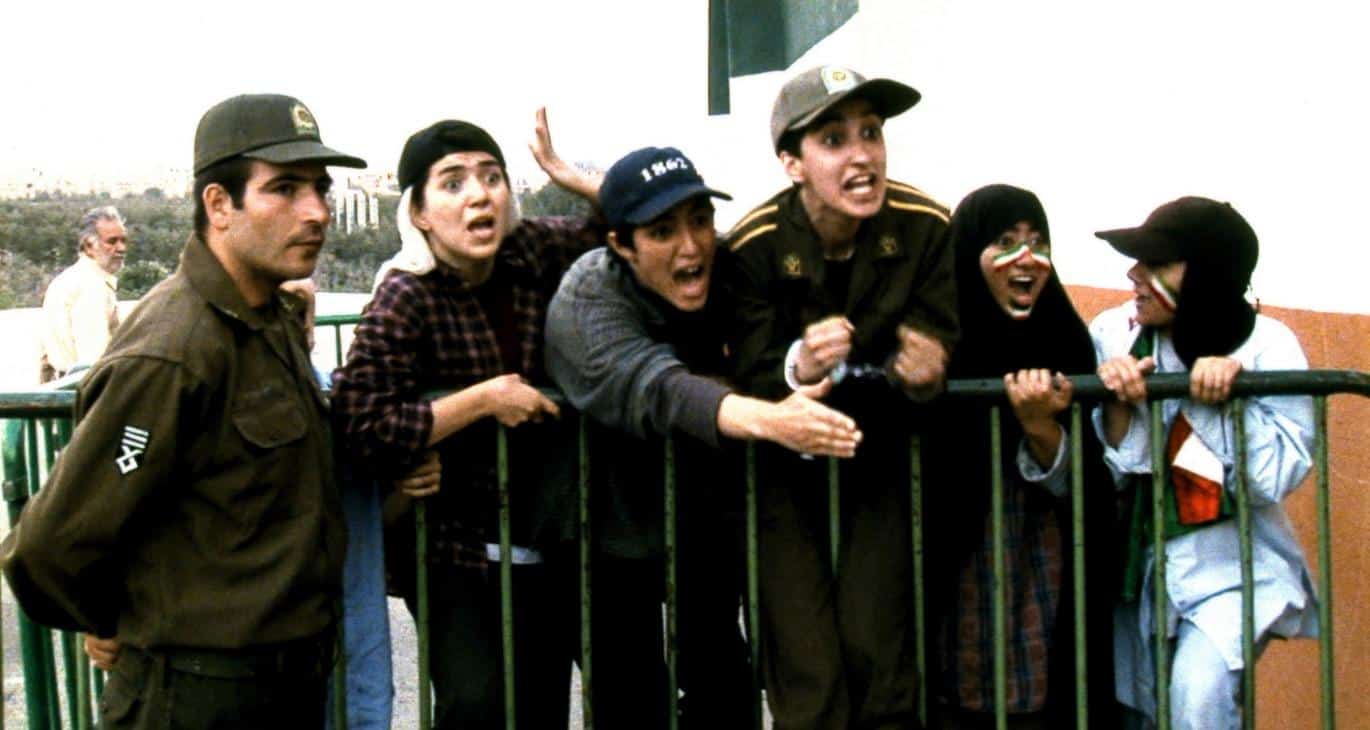
Jafar Panahi's neorealistic oeuvre is thoroughly amplified by his 2006 docufiction film “Offside,” which received the Silver Bear from the 2006 Berlinale. In his fifth feature film, Panahi stitches together a patchwork of stories that create a portrait of humanity and interconnected lives, united by fear and bravery, sadness and joy, and oppression and freedom. Its premise is simple but powerful, following mostly unnamed characters played by a brilliant ensemble cast (including Sima Mobarak-Shahi, Shayesteh Irani, Ayda Sadeqi, Golnaz Farmani, and Mahnaz Zabihi). In “Offside,” a group of girls attempt to enter the 2006 World Cup qualifying match in Tehran between the soccer teams of Iran and Bahrain but are shut out. Filmed at a match played by the Iranian National Team, the plot is based on laws that prohibit women from attending men's soccer games, a point of contention for gender separation and segregation in Iran. The film was banned from screening in-country due to its content.
Panahi is known for his boundary-breaking films that blur the line between fiction and documentary, showing life in Iran under the regime but in ways that highlight its daily rhythms. Because of his support for freedom of expression in Iran as well as his work, which often touches on topics controversial to the government, he has been arrested multiple times and sentenced to imprisonment and house arrest.
6. A Separation (2011) by Asghar Farhadi
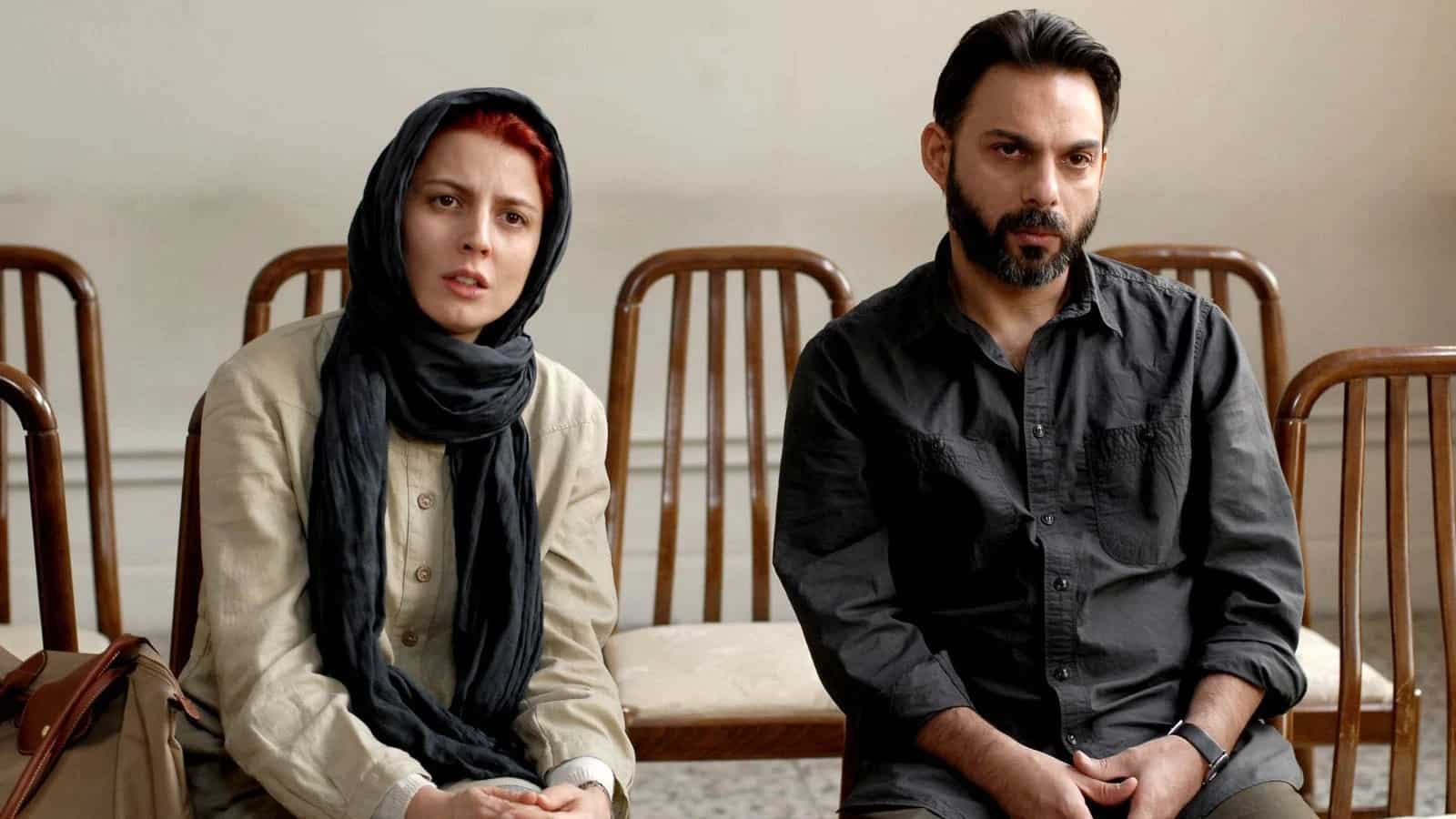
Written and directed by Asghar Farhadi, “A Separation” was critically acclaimed and won the 2012 Oscar for Best Foreign Language Film as well as the Golden Bear for Best Film and Silver Bears for Best Actress and Best Actor at the 2011 Berlinale. The director's masterful work highlights the dramatic mundanities of Iranian domestic life, following Simin (Leila Hatami), who tries to file for divorce from her husband Nader (Peyman Moaadi), and the resulting legal battle that ensues.
Farhadi was at first banned from making the film due to his support of filmmakers who supported political movements within Iran, including Mohsen Mokhmalbaf and Jafar Panahi. Like many of his films, “A Separation” is premised on a very simple idea and gradually grows more unnerving as the story goes on, providing a subtle political commentary on the push and pull between the comforts of the Iranian middle class and the possibilities of seeking a very different life abroad.


